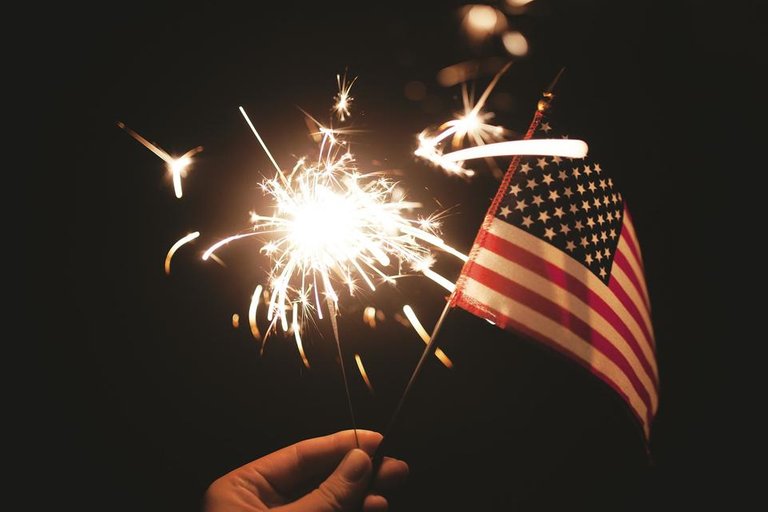The 4th of July is most commonly known as the American Independence Day, some Filipinos see the American holiday as of little to no significance for the Philippines. While Philippine Declaration of Independence occurred on the 12th of June 1898 as the Spanish–American War was furthering since April of the same year, and we have since celebrated the Philippine Independence Day on the same date each year, The Philippine–American War within eight months quickly followed that declaration of independence. July 4, 1946 was when the Treaty of Manila was signed, relinquishing the sovereignty of the United States over the Philippines - recognizing the Philippines as a free Republic.

One would think great the Philippines is finally free, until we had to free ourselves from a tyrannical rule through a People Power Revolutionin 1986. Are we now finally free? It seems like our concept of freedom is changing from the earliest recorded history.
What is Freedom
Freedom, independence, liberty refer to an absence of undue restrictions and an opportunity to exercise one's rights and powers. Freedom emphasizes the opportunity given for the exercise of one's rights, powers, desires, or the like: freedom of speech or conscience; freedom of movement. Independence implies not only lack of restrictions but also the ability to stand alone, unsustained by anything else: Independence of thought promotes invention and discovery. Liberty, though most often interchanged with freedom, is also used to imply undue exercise of freedom.
I borrowed this definition from Dictionary.com. As you can see that is quite a common sensical definition of freedom. I believe that there's not been much change to this definition. The changing concept of freedom lies not much in what we believe to be the meaning of freedom; rather it changes with our likes, our desires, and what came to our power to exercise.
The Evolution of Freedom
For cavemen it was freedom from predators that threatened their kill which was their means for survival, in the era of western colonization it was setting own governments to rule ones country, for countries under tyrant rule it was breaking free from tyranny and having democracy, for anarchists it is freedom from the institutions and doing "whatever the hell we want".

Our concept of freedom also evolved depending on what we believed we need and no longer need. The cave provided freedom to rest for the cavemen, travel provided freedom to discover, governments provided freedom from colonizers - while seen as impediments by anarchists. Our history shows how what once was seen as liberators can turn to be restrictors.
Economic Freedom
Economic freedom or economic liberty is the ability of people of a society to take economic actions. This is a term used in economic and policy debates as well as in the philosophy of economics. One approach to economic freedom comes from classical liberal and libertarian traditions emphasizing free markets, free trade, and private property under free enterprise. Another approach to economic freedom extends the welfare economics study of individual choice, with greater economic freedom coming from a "larger" (in some technical sense) set of possible choices. Other conceptions of economic freedom include freedom from want and the freedom to engage in collective bargaining.
With the above definition from WikiPedia one would think we do have economic freedom. Just about anyone banked can participate in the free market, we can pass value from one to another engaging in trade, we can have ownership of properties, we have plenty of choices in our approach to go about our economic activities. There is a fundamental flaw however, in this definition given to economic freedom. Going back to the definition of freedom in the third paragraph, the definition of economic freedom is missing "implies not only lack of restrictions but also the ability to stand alone, unsustained by anything else."

Our practice of what we considered economic freedom before the blockchain technology existed was not with ability to stand alone; clearly sustained by institutions like the banks, brokers, organizations, and governments. We depended on institutions for having the sort of freedom we had to practice our economic actions before the blockchain existed. This is one example of a liberator turned restrictor. These institutions once provided us freedom to practice economy, now we see them as limiting us from a true independence in the practice of our economic actions.
While the blockchain technology already exist today, we are far from being truly free, but we are making progress for sure. We need a couple of things to happen to claim we are free to practice our economic actions with the technology that today exists.
- A situation at which we as a minority is protected against the will of the majority until we breakthrough the mainstream. We all know this does not exist today. A FUD from an institution causes crashes in the price.
- Protection against the elite. With the current valuation, the moneyed elite can conspire to bring us back a few decades.
- Finally, while there are now a number of options for consensus, we need to figure out or come up with the best way to contest and have voices heard outside of the preferential economy that today exists.
Happy Independence Day to all Americans, and as mentioned by @steemitblog in Blockchain of Opportunity - July 4th post, congratulations to all Steemians especially the early adaptors who received the first distribution of Steem on the 4th of July 2016.


)
)
)
Great info, very interesting!
We are really not free after that declaration of 1898 because we were sold by the Spaniard to the US, to become a colonial state.
Happy independence day
Interesting article! ;)